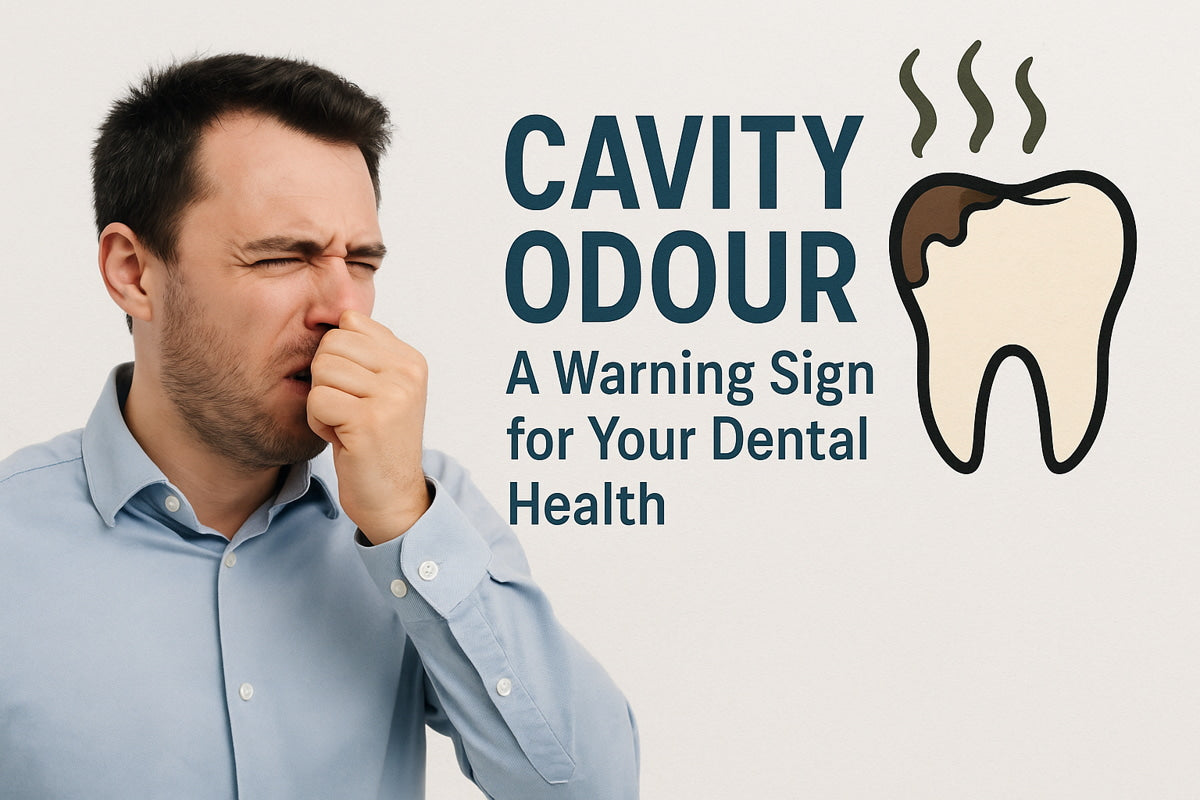When it comes to oral health, most Australians are familiar with the basics—brushing, flossing and regular dental check-ups.
But there’s one subtle sign that often gets overlooked, and it might be trying to tell you something important about the state of your teeth: cavity odour.
If you've ever noticed a strange, persistent smell coming from your mouth despite good hygiene, it could be more than just morning breath or something you ate.
It might be a sign of tooth decay or other dental issues that require immediate attention.
What is Cavity Odour?
Cavity odour refers to the unpleasant smell that originates from decayed areas of a tooth. Unlike general bad breath (halitosis), which can be caused by poor oral hygiene, food particles or digestive issues, cavity odour usually stems from bacterial activity within a damaged or decaying tooth.
When bacteria break down food particles and tooth enamel, they release volatile sulphur compounds (VSCs). These compounds are the same foul-smelling gases responsible for rotten egg or sulphur-like odours.
What Causes the Odour?
The main culprit behind cavity odour is dental caries, commonly known as cavities. Here’s how it happens:
-
Tooth decay begins when plaque (a sticky film of bacteria) builds up on your teeth and feeds on sugars in your diet.
-
These bacteria produce acids that slowly erode the enamel, creating tiny holes or cavities.
-
As the cavity deepens, food debris and bacteria get trapped, and the decay process accelerates.
-
This internal rot gives off a noticeable, often unpleasant odour.
Left untreated, the decay can reach the inner pulp of the tooth, leading to infection, abscesses, and even more offensive smells.
How to Tell If a Cavity Is Causing Bad Breath
Not all bad breath is a result of cavities. However, if you notice any of the following signs, it’s time to see a dentist:
-
Persistent bad breath even after brushing and rinsing
-
A foul taste in your mouth
-
Sensitivity to sweet, hot or cold foods
-
Discolouration or dark spots on a tooth
-
Visible holes or pits in the teeth
-
Pain when biting or chewing
It’s also worth noting that a tooth with a strong odour may already be significantly decayed, meaning prompt treatment is critical.
Why You Shouldn't Ignore It
While it might be tempting to mask the smell with mints or mouthwash, cavity odour is a symptom of a deeper issue. Ignoring it can lead to:
-
Severe tooth damage
-
Infections or abscesses
-
Tooth loss
-
Spread of infection to other parts of the body
Early intervention not only saves the tooth but also prevents more costly and invasive dental procedures down the line.
Prevention is Better Than Cure
Prevention is always the best approach. Here’s how to reduce your risk of cavities and their associated odours:
-
Brush twice daily with a fluoride toothpaste.
-
Floss daily to remove plaque between teeth.
-
Use an antimicrobial mouthwash to reduce oral bacteria.
-
Limit sugary snacks and drinks.
-
Drink plenty of water, especially after meals.
-
Visit your dentist regularly; we recommend at least twice a year
-
Consider professional oral health assessments, especially if you're prone to decay or bad breath.
Our Approach to Cavity Prevention and Breath Care at BreezeCare
At BreezeCare, we focus on providing effective, at-home solutions for managing cavities, bad breath and overall oral health.
Our curated range of dentist-recommended products supports your oral hygiene routine with science-backed care, from targeted mouth rinses and high-strength toothpaste to tongue cleaners and breath-freshening systems.
Bad breath and cavity-related odours aren’t just cosmetic concerns; they’re signs that your oral care routine may need a boost. That’s where our specialised product collections come in, helping you address the source of the problem, not just mask it.
Final Thoughts
Cavity-related odour is more than just an annoyance—it’s often a warning sign of deeper oral health issues. With the right products and daily habits, you can tackle the root cause and restore freshness and comfort.
BreezeCare offers both professional clinic support and a full range of at-home oral care products to help you manage your oral health with confidence. Contact our team or book a clinic visit today to get expert help tailored to your needs.











